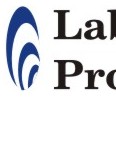 |
 |
 |
 |
 |
|
 |
 |
 |
 |
 |
|
 |
 |
 |
 |
 |
|
 |
 |
 |
 |
 |
|
 |
 |
 |
 |
 |
|
FAIR DISCRIMINATION DISCRIMINATION:
The
law provides for redress for an *employee who is subject to an unfair
labour practice in the workplace.
An unfair labour practice includes any unfair act or omission that
arises between an employer and employee, involving unfair
discrimination, whether directly or indirectly, against an employee.
(*employee includes an applicant for employment.) Fair discrimination:
The law sets out four grounds on which discrimination is generally
allowed- i. Discrimination based on affirmative action; ii. Discrimination based on the inherent requirement of a particular job; iii. Compulsory discrimination by law; and iv. Discrimination based on productivity i. Discrimination based on affirmative action
Affirmative action measures are designed to promote employment equity
(fairness in favour of the designated groups – blacks, women and
disabled persons.) Affirmative action aims to achieve equality at
work without lowering standards and without unduly limiting the
prospects of existing employees, for example by getting rid of
discrimination in company policies, procedures and practices. Its
main aim is generally to ensure that the previously disadvantaged groups
are fairly represented in the workforce of a particular employer.
ii. Discrimination based on the inherent requirements of a job
Any discrimination based on the inherent requirement of the particular
job does not constitute unfair discrimination. An inherent
requirement of a job depends on the nature of the job and required
qualifications. If such requirements can be shown, discrimination
will be fair, for example a person with extremely poor eyesight cannot
be employed as an airline pilot.
iii.
Fair compulsory discrimination by law
The law does not allow the employer to employ children under the age of
15 years, or pregnant women four weeks before confinement and six weeks
after birth…
iv.
Discrimination based on productivity
It is also fair by law for the employer to discriminate on the basis of
productivity (for instance when giving merit based increases).
This would of course be dependent on the fairness of the criteria
utilized for assessing performance and productivity.
Information
contained herein in is based on documentation available from the CCMA.
>>
Labour Law
>>
useful links
>>
advice
>>
harassment
>>
disabilities
>>
pregnancy
>>
HIV/Aids |
|
|National Assistance: 0860 LABOUR/ 0860 522687
|
||||
| To join... | ||||
| (the Membership Fee is only R85pm): | ||||
|
||||